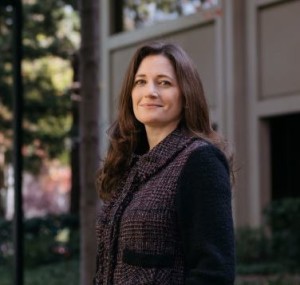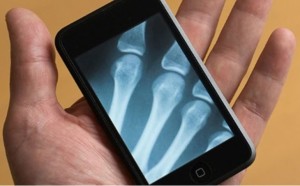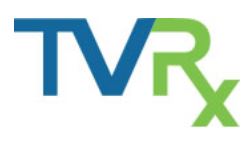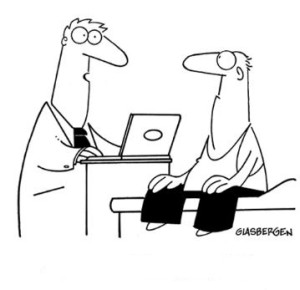- Sanofi wins first dengue vaccine market approval in Mexico (reuters.com)Mexico Approves Sanofi’s Dengue Vaccine but Pricing Questions Remain (may req sub) (wsj.com)
Sanofi's dengue vaccine is to make its market debut in Mexico, the French drugmaker said…adding that it expects to have filed for market approval in some 20 countries by year-end…the preventive treatment, called Dengvaxia, for all four dengue virus serotypes, but only for patients aged 9 to 45 who live in areas where the disease is endemic…This means the world's first dengue vaccine has no approval yet for use on young children, a population considered to be most at risk, or for use by tourists…Dengue fever is a mosquito-borne disease caused by four virus serotypes as categorized by the World Health Organisation...the disease is seen as a threat to about half of the world's population. Some 400 million people are believed to be infected annually...
- Google’s next big idea: Mining health data to prevent disease (statnews.com)
Dr. Jessica Mega…medical director of Google Life Sciences…to lead the new firm’s ambitious quest to analyze genomic, molecular, and imaging big data from 10,000 volunteers to figure out what it means to be healthy — the so-called baseline study…Its experts try to turn blue-sky ideas into products by cross-pollinating medicine, engineering, and data science…I’m normally around physicians and patients. Now I spend my days with amazing engineers. The things you hear around here are “try to fail fast,” and “let’s just try ideas.” What I’ve taught myself to do is first say “yes” and try to be very open, then get analytical and move to a point where we’re being strategic and tactical…The way I think about it is trying to understand more about a given individual so they get the right treatment, get the right medications, and avoid the side effects. We’re trying to figure out ways to help empower people so that they don’t need to spend as much time in hospitals…People don’t want a lot of unnecessary, expensive, cumbersome, inaccurate tests. But we’re working to come up with things that provide actionable information.
- Easy on those apps: Mobile medical apps gain support, but many lack clinical evidence (modernhealthcare.com)
Mobile medical applications increasingly are being used by patients and consumers. Now healthcare providers are evaluating whether and how to work with their patients in tapping these apps. But they're proceeding cautiously because of the dearth of clinical evidence for many consumer apps, and because some developers may be misleading consumers by overstating their products' capabilities…I think we will be seeing an increase in scrutiny and enforcement by the FDA and the FTC…medical devices treading in the areas of diagnosis and treatment, for those I think we'll see increased enforcement...healthcare providers, a major factor driving that adoption is the shift to value-based payment, which creates a powerful incentive to keep patients healthier and reduce costs by avoiding unnecessary hospitalizations and emergency department use…As with the introduction of any new clinical-care process, there are safety issues…We're going from a situation where we had no data to one where we probably have more data than we need…mobile apps can offer clinical benefits, particularly when used in a structured healthcare program…Healthcare lawyers caution that providers run a variety of legal risks in using mobile apps with patients. “If the patient brings in a bunch of stuff, if you rely on it and it's wrong, it's a problem”…“But if you ignore it and it's right, it's a problem. You're damned if you do and damned if you don't.”
- If TV’s everywhere, then where does pharma need to be? (fiercepharmamarketing.com)
Everyday Health, Inc., a…provider of digital health marketing and communications solutions, and Videology, a…software provider for converged TV and video advertising…announced the launch of TVRx, a solution for pharmaceutical and health-oriented marketers to target relevant health audiences across television and digital video. The…partnership combines Everyday Health's…audience reach and analytics…with Videology's…platform for planning, executing and measuring video campaigns across any screen…"Television remains a staple for advertisers in the health vertical. However, as the industry focuses on smaller patient populations and consumer viewing fragments across multiple screens, the ability to reach the right audiences with relevant messaging has become more difficult,"…"TVRx addresses this challenge by enabling advertisers to find the right audience - regardless of viewing screen - and achieve a desired marketing outcome…"TVRx takes everything that is great about TV and incorporates the enhanced targeting and measurement capabilities of digital, to provide the most sophisticated targeting and ROI measurement across both linear TV and digital video.
- ASHP to Launch Comprehensive Digital Drug Information Resource (ashp.org)
ASHP today announced that it will release a comprehensive suite of its…drug information databases, including AHFS Drug Information®, in early 2016. Recruitment for beta testers will begin during ASHP’s 50th Midyear Clinical Meeting this week in New Orleans…The new product, AHFS® Clinical Drug Information, will provide clinicians with easy access to detailed drug information, including real-time drug and safety updates, direct links to more than 60,000 supporting evidence sources, and in-depth coverage of off-label uses… AHFS Clinical Drug Information will be available via Web browser as well as iOS and Android apps. Individual pricing will begin at $10 per month. The user interface will also integrate into clinical workflow solutions in hospitals and ambulatory care settings.
- For real R&D innovation, blur the lines between pharma and academia: Panel (fiercebiotech.com)
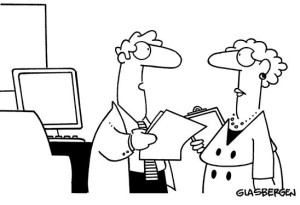
"My team has created a very innovative drug, but we're still looking for a disease to treat with it."
Collaborating with academia has been de rigueur in the pharma world for years, but it's a different game these days. Recognizing that scientists on both sides of the divide can't be distant neighbors anymore, drugmakers and academics are invading each other's personal space, even working side-by-side in the same labs. They're learning unexpected things about their counterparts. And they're coming to terms with the inherent conflict between research for curiosity's sake and research for the market…optimistic about their collaborative efforts, regardless of the challenges...innovation isn't innovation unless it's put to use--i.e., taken to market--would be anathema to many academics…we try to find the best brains and give them the freedom to pursue their curiosity,"…"Basically many leading academics don't do well in structured programs."..."Our worlds are approaching each other more and more,"…and as the results of these collaborations begin to hit the market, that will give the very idea a boost…global trends will make collaborations an even more important part of working in the pharma business: "Now, with the internet, how information flows, how this generation moves across the globe, with the knowledge-driven economy, you'll see the boundaries between institutions blur even more."
- Annual Specialty Therapies Conference; Jan. 28-29 | Planet Hollywood | Las Vegas, NV (drugchannels.net)Effectively Managing Specialty Therapies a Forum for Payers 2016 (cbinet.com)
CBI’s Specialty Therapies Forum, the conference that brings together healthcare and pharmaceutical thought leaders to share best practices for managing specialty therapies…an opportunity to discuss not only strategies for managing the cost of specialty therapies, but also to provide the latest information and case studies dedicated to ensuring access and quality care in specialty benefit management. New to the agenda this year is a workshop dedicated to Specialty Pipeline Management.
Dialogue led by key thought leaders:
Avella Specialty Pharmacy | Blue Cross Blue Shield of Massachusetts | Blue Cross and Blue Shield of Minnesota | Blue Cross and Blue Shield of North Carolina | Denver Health Medical Plan | Fairview Specialty Pharmacy | Florida Blue | Gorman Health Group | Horizon Blue Cross Blue Shield New Jersey | Independent Health | NSHOA Cancer Centers in NY | Rutgers RWJ Medical School | Walgreens | Walmart | Widener University
- E-mails reveal concerns about Theranos’s FDA compliance date back years (washingtonpost.com)Surprise: Theranos CEO Says Company Is Doing More Tests Than Ever (forbes.com)A comprehensive guide to Theranos’s troubles and what it means for you (washingtonpost.com)Hot Startup Theranos Has Struggled With Its Blood-Test Technology (req sub) (wsj.com)
Years before Theranos…came under harsh public scrutiny in October, a military official raised concerns that the secretive company was violating federal law…E-mail correspondence obtained by the Post reveals that an official evaluating Theranos’s signature blood-testing technology for the Department of Defense sounded the alarm in 2012 and launched a formal inquiry with the Food and Drug Administration about the company’s intent to distribute its tests without FDA clearance — a problem that has resurfaced this year, leading Theranos to temporarily stop offering almost all of its tests...In October, a Wall Street Journal investigation revealed the company was running most of its tests on devices made by other firms instead of its own “breakthrough” technology. The Journal reported that former Theranos employees and executives of Safeway had questioned the accuracy of the tests.
- Doctors’ use of computers during appointments leaves patients less satisfied (reuters.com)
Doctors who entered data into computerized health records during patients' appointments did less positive communicating, and patients rated their care excellent less often…Many clinicians worry that electronic health records keep them from connecting with their patients…doctors who used the computer more also spent more time correcting or disagreeing with patients…Doctors who spent more time using the computer spent less time making eye contact with patients and tended to engage in more “negative rapport building,” correcting patients about their medical history or drugs they’ve taken based on information in the electronic record…That’s not necessarily a bad thing…Doctors who spend most of the time looking at the computer may miss out on an emotional connection with the patient…When people are paying attention to the same thing at the same time, you get the best transmission of information… Electronic health records need to be more usable so clinicians with varying computer proficiency can use them without struggling and diverting focus from patients…
- Apple Watch used to study epileptic seizures (baltimoresun.com)Johns Hopkins EpiWatch: App and Research Study (hopkinsmedicine.org)
For the 2.5 million people living with epilepsy… medications can help control their seizures — most of the time. But some suffer unpleasant side effects from the drugs. And a few remain at risk of death…Researchers at the Johns Hopkins University hope to help those with the neurological condition by collecting information about their seizures through their…Apple Watches…"Physicians often ask patients to record their seizures, but that can be hard, especially when a patient loses consciousness," said Dr. Gregory Krauss…who is working on the program, named EpiWatch…collects data that help researchers better understand epilepsy, while helping patients keep a more complete history of their seizures," he said…The data could not only help doctors adjust an individual's treatment to make it more effective and less burdensome, but could also help...counter sudden unexpected death, a danger some face from seizures.


